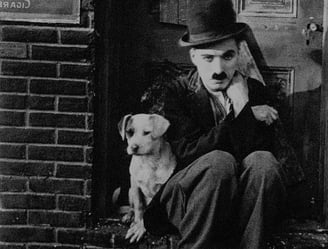The Impact of Music in Charlie Chaplin's Work: Mastery in the Cinematic Sound World
The article explores Charlie Chaplin's adept integration of music, enhancing emotion and narrative depth in his cinematic masterpieces.
ABOUT MUSIC
11/30/20231 min read


Charlie Chaplin, the master of silent cinema, is renowned for his ability to transform expressive possibilities through the sophisticated use of music in his films. In this piece, we will delve into how he seamlessly blended musical accompaniment with visual storytelling, endowing his masterpieces with unparalleled atmosphere and emotional depth.
In silent cinema, where dialogue is absent, music becomes a language telling an additional story. Chaplin proved faithful to this idea, complementing his films with masterful orchestral accompaniment that conveyed the emotional context of scenes more profoundly.
Comedy through Musical Rhythm
In comedies like "Modern Times" and "City Lights," Chaplin cleverly exploited the rhythm of music to enhance comedic moments. The synchronization between the character and the music created a unique comedic effect, emphasizing the director's brilliance.
Emotional Expressiveness through the Soundtrack
Music became not only a companion but also a crucial instrument for expressive emotion in Chaplin's films. The scene from "City Lights," where the main character touches the girl's face, gained particular depth through a well-chosen musical accompaniment.

Collaboration with Great Composers
Chaplin refined his art through collaborations with eminent composers such as Samuel Levi. Their synergy created a symbiotic unity between the visual and auditory, establishing a harmonious backdrop for the viewer to fully immerse themselves in Chaplin's world.
"The Great Dictator": The Magic of Musical Expression
In "The Great Dictator," Chaplin underscored the significance of music, using it as a powerful instrument to intensify the drama and weight of his performance. The compositions in this film interacted with language, articulating the profound meaning of his anti-fascist plea.

Conclusion
Charlie Chaplin proved to be a virtuoso in utilizing music as a pivotal element in his creative endeavors. He not only adhered to the traditional role of a soundtrack but transformed it into a potent instrument for expressing emotions and deepening the narrative. Thus, Chaplin left an indelible mark on the world of cinema, where music became an integral part of his unparalleled masterpieces.


Copyright © 2022 Synergy. All rights reserved.
Join Our Music Community
GET UPDATES IN YOUR MAILBOX
